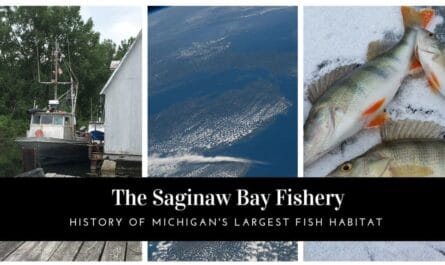Michigan, known for its Great Lakes and industrial history, finds itself at the forefront of a legal battle concerning aqueous film-forming foam (AFFF). Michigan AFFF lawsuits mark a pivotal moment in legal history. A surge in lawsuits against manufacturers of this firefighting foam has sparked a wave of concern over the potential contamination of Michigan’s water sources.

As the litigation unfolds, Michigan’s environmental and legal landscape is undergoing a transformation, highlighting the need for safeguards against the dangers of AFFF. In this article, we will explore Michigan’s pivotal role in AFFF lawsuits, examining legal developments, health impacts, settlements, and environmental conservation efforts.
Michigan’s Role in AFFF Litigation
Michigan stands as a crucial player in the AFFF litigation, with a notable industrial presence contributing to widespread foam use. As noted by Operation Military Kids, the state of Michigan has a total of 10 active military bases. The state’s manufacturing facilities and military bases have been significant consumers of AFFF, leading to a surge in health-related lawsuits.
As the legal battles unfold, Michigan emerges as a focal point. This emphasizes the need for manufacturers to be held accountable for the potential environmental and health risks associated with their products. The state’s contribution to the multidistrict litigation underscores its unique position in shaping the trajectory of AFFF-related legal proceedings.
The Impact on Water Supply Companies
Michigan’s water supply companies are grappling with the repercussions of AFFF contamination. They actively participate in lawsuits seeking compensation for the financial strain in filtering harmful chemicals from drinking water.
The contamination of water supplies across the state poses a significant threat to public health, prompting these companies to hold manufacturers accountable.
The legal battles underscore the vital role water supply companies play in safeguarding communities. This emphasizes the need for manufacturers to bear the financial responsibility for addressing the environmental fallout of AFFF use.
AFFF and Michigan’s Military Presence
Michigan’s military installations and personnel find themselves entangled in the AFFF lawsuits, given the state’s substantial military presence. Military bases have been prominent users of AFFF, raising concerns about the health risks faced by service members.
The litigation sheds light on manufacturers’ responsibility towards military personnel and the potential consequences of prolonged exposure to AFFF. Michigan’s military communities are at the forefront of the lawsuits, emphasizing the challenges faced by service members and the need to address these concerns.
Michigan Communities and AFFF Health Risks
Michigan communities living in proximity to industrial facilities and military bases face heightened health risks due to potential AFFF contamination. The lawsuits highlight the increased likelihood of serious health conditions, including cancer, among individuals exposed to AFFF.
According to Metro Times, Michigan residents vividly recall recent events such as the 2014 Flint Water Crisis, which exposed 100,000 people to lead. Beyond concerns of industrial pollution and institutional neglect, the military’s use of toxic substances adds another environmental risk for communities residing near contaminated bases.
The diverse communities across Michigan are now actively seeking justice for the health challenges they endure. This underscores the urgent need for manufacturers to be held accountable for the consequences of AFFF use within residential areas.
Michigan-Specific Legal Developments
Michigan’s legal landscape within the AFFF lawsuits is witnessing unique developments as courts actively address motions and requests related to the litigation. The state’s judicial system plays a crucial role in shaping the legal framework for AFFF cases, contributing to the overall evolution of the litigation.
Michigan’s specific legal developments add a nuanced layer to the ongoing proceedings. This reflects the state’s commitment to ensuring justice and accountability for its residents affected by AFFF contamination.
Michigan Manufacturers and AFFF
Michigan-based manufacturers involved in AFFF production are under intense scrutiny in the lawsuits. The state’s role in manufacturing AFFF adds a distinctive dimension to the litigation.
It emphasizes the importance of local accountability in preventing and addressing environmental and health risks associated with these toxic firefighting foams. As lawsuits unfold, Michigan manufacturers face increasing pressure to address their role in AFFF production and take responsibility.
AFFF Lawsuit Settlements and Michigan
Michigan residents and entities affected by AFFF contamination are closely monitoring settlement developments, anticipating potential financial relief and environmental remediation. Any settlements reached have the potential to significantly impact Michigan’s ability to address the environmental consequences and provide compensation to those affected.
In recent negotiations, manufacturers, including 3M, DuPont, and Kidde-Fenwal, have offered substantial AFFF lawsuit settlement amounts to resolve the mounting litigation.
As reported by AP News, 3M proposed a settlement of $10.3 billion to settle thousands of AFFF lawsuits last year. If approved, the settlements will be payable over 13 years and might scale up to $12.5 billion. Residents and advocacy groups are closely scrutinizing these settlements to ensure they adequately address the long-term impact on Michigan’s ecosystems and public health.
According to TruLaw, the AFFF settlements are expected to cover a range of damages. This includes compensation for health-related expenses, environmental remediation, and ongoing monitoring of affected areas. Michigan’s judicial system plays a crucial role in overseeing the fairness and adequacy of these settlements.
Environmental Conservation Efforts in Michigan
Michigan, recognizing the urgency of environmental conservation amid AFFF lawsuits, is actively implementing measures to mitigate the impact of contamination. State agencies and environmental organizations collaborate to assess environmental damage and implement remediation strategies.
Michigan’s Department of Environment, Great Lakes, and Energy (EGLE) intensify monitoring programs, aligning with ongoing legal proceedings. Residents engage in awareness campaigns and grassroots initiatives, contributing to a broader movement aimed at safeguarding Michigan’s ecosystems.
The state’s commitment to balancing legal accountability with proactive environmental conservation efforts serves as a crucial component in shaping Michigan’s response to AFFF-related challenges. This ensures the long-term health and sustainability of its natural resources and communities.
In conclusion, Michigan’s involvement in AFFF lawsuits signals a transformative period, intertwining legal battles, health concerns, and environmental conservation efforts. As water supply companies, military communities, and affected residents seek justice, Michigan’s unique position underscores the profound impact of AFFF contamination.
The state’s legal developments, ongoing settlements, and commitment to environmental conservation form a dynamic that shapes its response. Vigilance in scrutinizing settlements is paramount to ensuring comprehensive resolution.
States like Michigan stand at the forefront, navigating the intersection of law, health, and ecology, demonstrating a collective pursuit of justice and environmental well-being.
Final Thoughts About Michigan AFFF Lawsuits
In conclusion, the Michigan AFFF Lawsuits symbolize a critical juncture in the intersection of environmental advocacy and legal responsibility. These cases not only spotlight the urgent need for stringent regulations on hazardous substances but also reflect Michigan’s proactive stance in safeguarding its natural resources and public health. As the state navigates through these complex legal waters, the outcomes of these lawsuits are poised to set a precedent, potentially inspiring nationwide reforms in environmental policy and corporate accountability. Michigan’s journey through these legal challenges underscores a broader narrative of resilience and a commitment to a cleaner, safer environment for future generations.



